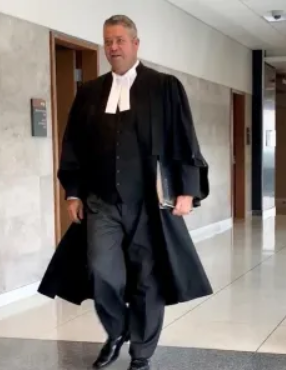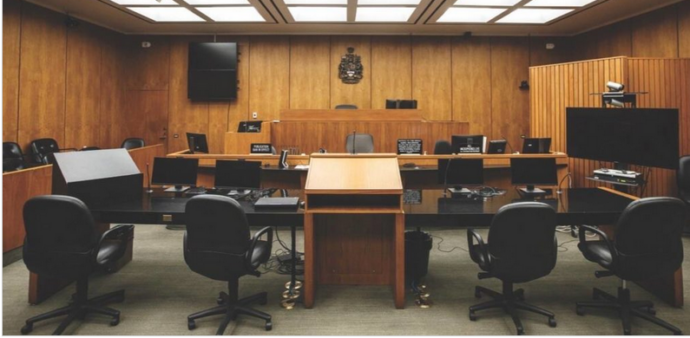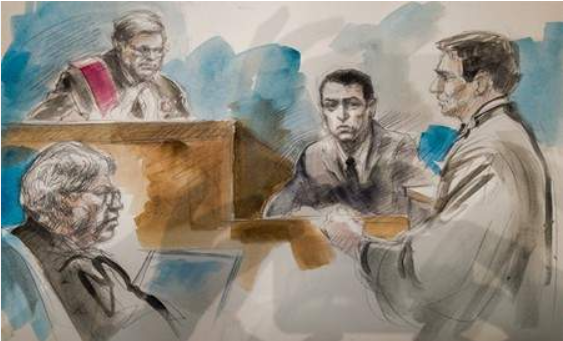 By Milas Rodakavic
By Milas Rodakavic
November 13th, 2023
BURLINGTON, ON

Lawyers are required to wear robes when presenting a case.
Criminal attorneys bear a heavy responsibility to their clients by representing them in cases that can have life-altering ramifications and fighting for justice on their behalf. Furthermore, their work contributes significantly to upholding the integrity of legal profession.
They ensure that innocent individuals do not go to jail for crimes they did not commit and that those convicted receive appropriate sentences commensurate with their offenses, rather than overly severe ones based on passion or prejudice.
Defending and Representing Clients in Court
Criminal lawyers take their duty of defending clients facing criminal charges very seriously. After reviewing all available evidence to formulate their strategy and consulting with prosecutors on essential aspects of the case, criminal attorneys work tirelessly on their clients’ behalf.
Client defence counsels also interview witnesses and prepare their client to testify, to ensure witness testimonies align with defence strategies and effectively challenge prosecution evidence.
At trial, attorneys represent their client’s version of events while challenging any discrepancies or bias in witness testimony. Their ultimate aim is to protect innocent individuals from unfair convictions by making sure the state must prove guilt beyond reasonable doubt.
Criminal lawyers must always act ethically when representing their clients. For instance, if Sam were found guilty of murdering Lord Russell, their legal representation would need to explain why they weren’t able to convince a jury he did not commit this act – otherwise they risk disbarment for unethical behaviour.
Collecting Evidence
Mississauga criminal lawyers face one of the greatest challenges in questioning witnesses and challenging evidence collected by police, and making sure any material that might help clear up false accusations or reduce sentences is not altered or hidden from them.

Layout of a typical Canadian Courtroom.
Criminal lawyers need to have comprehensive legal knowledge and experience, such as understanding state and local laws, court procedures, evidentiary rules and having strong interpersonal and critical thinking abilities.
Criminal lawyers don’t typically face much danger in their day-to-day work despite popular perception. Their primary risk lies with working directly with clients who may threaten or abuse them during heated moments – this usually only ever involves verbal outbursts; more serious risks come with representing clients facing allegations with potentially life-altering implications, so it is imperative that criminal attorneys understand the rights and principles which protect clients against arbitrary state authority.
Negotiating with the Prosecutor
Criminal lawyers not only represent and defend clients in court, but they can also negotiate plea deals by emphasizing mitigating factors like mental health concerns, financial hardship or family circumstances as an attempt to convince prosecutors that their client has good reason to be let off the hook.
Etobicoke lawyers also bear responsibility to testify at trials and ensure their clients do not commit further offenses in the future. When working on cases carrying harsh punishments such as prison time criminal lawyers must always remain mindful of how their actions could damage either their client’s reputation or integrity.
Criminal Law can be both challenging and rewarding as a career path, necessitating strong research, investigative, and creative thinking skills as well as legal strategy development abilities to successfully litigate cases. Some criminal lawyers specialize in specific types of cases while others choose to become judges or politicians who affect change at higher levels.
Representing Clients at Trial

Cameras are not permitted in Canadian Courtrooms. Judges always wear a robe with a scarlet red sash.
Criminal lawyers focus their practice on representing and defending clients, which often requires explaining legal concepts in easily understandable language, conducting thorough investigations of cases, negotiating with prosecutors and vigorously representing client interests at trial if no out-of-court settlement can be achieved.
Criminal lawyers also have an obligation to uphold the integrity of their profession by not misleading courts and adhering to the Law Society of Upper Canada’s Rules of Professional Conduct. Furthermore, they should feel at ease discussing sensitive information or viewing graphic evidence.
Criminal lawyers’ role during jury selection is to engage potential jurors in professional yet friendly conversations in order to uncover any biases or prejudices which might negatively influence a case’s outcome. This process, known as voir dire, allows lawyers to question prospective jurors during trials. With their questions come opportunities to present an argument that challenges preconceived notions and shift jury opinions towards their client.














